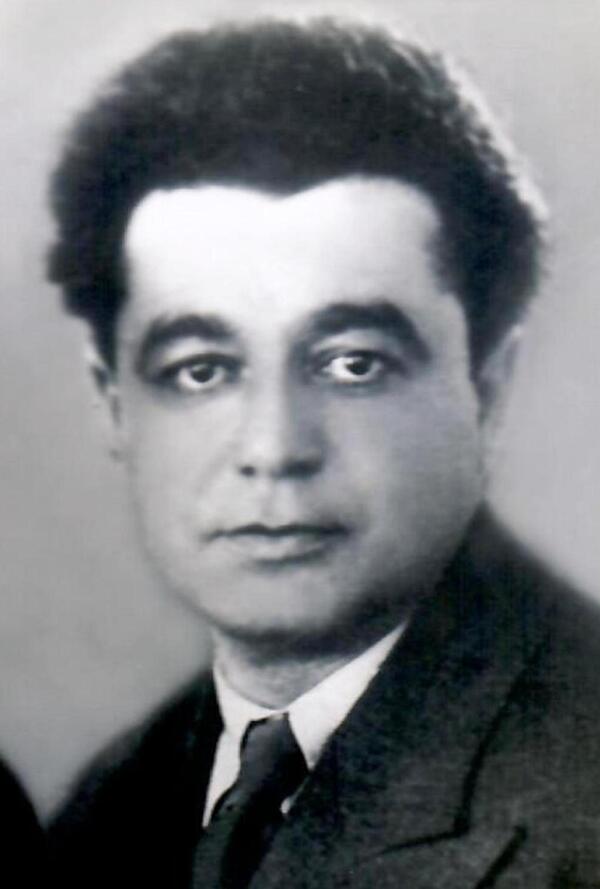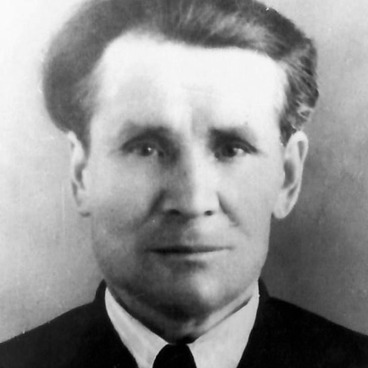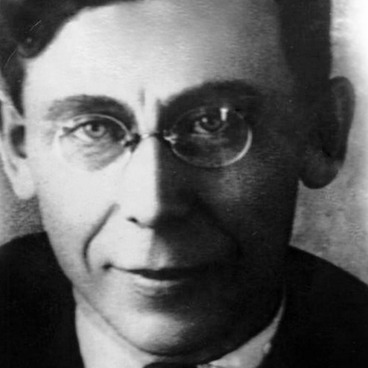One of the first people to head oil enterprises in the Ural and Volga region was Roman Buchatsky. He was born in the village of Novaya Praga in Ukraine’s Yekaterinoslav Province in 1896. After graduating from the local school and gymnasium, he worked as a shop assistant for some time. He fought on the front lines of World War I, where he was seriously wounded. He was an active member of the revolutionary movement.
In the late 1920s, Buchatsky was sent to work in the Perm Krai, where he was appointed head of the Uralneft trust company when it was first founded. In 1931, he stepped up as the head of the Vostokneft trust company. He took much interest in IshimbAy oil exploration, becoming the director of the oil field in the IshimbAy workers’ settlement in December 1934. He did not receive any professional education, however he read a lot, studied oil business in Baku, and visited oil fields in Germany and the United States.
BuchAtsky can rightfully be called the originator of the IshimbAy oil field project. All Ishimbaevo operations were carried out under his direct supervision. He was the one who picked and recommended the location for the future village of Ishimbaevo, launching a large-scale construction of rammed earth and wattle-and-daub barracks at the selected spot. He also put a lot of effort into organizing the distribution and storage of the first oil.
In 1936–1938, a considerable number of high-ranking technical specialists working in the Soviet oil industry suffered repression. The spring of 1937 marked the opening of an investigation into Glavneft, the Chief Directorate of the Oil Industry under the People’s Commissariat of Heavy Industry of the Soviet Union. The investigation resulted in a fabricated case exposing a supposed sabotage organization operating in the Soviet oil industry. Georgy Pyatakov, Deputy Commissioner of Heavy Industry, was accused of being the leader of the alleged enemy group.
Buchatsky was affected by repression as well. At first, he was demoted to the position of Director of Bashneft, even though before that he was in charge of the entire Vostokneft trust company, managing all oil operations from the Urals to Sakhalin. In April 1937, he was charged in counter-revolutionary activities. Buchatsky was arrested on April 4, 1937, and a closed trial was held in Ufa on December 25, 1937. Buchatsky was executed by a firing squad in the courtyard of a prison in Ufa after being found guilty.
In the late 1920s, Buchatsky was sent to work in the Perm Krai, where he was appointed head of the Uralneft trust company when it was first founded. In 1931, he stepped up as the head of the Vostokneft trust company. He took much interest in IshimbAy oil exploration, becoming the director of the oil field in the IshimbAy workers’ settlement in December 1934. He did not receive any professional education, however he read a lot, studied oil business in Baku, and visited oil fields in Germany and the United States.
BuchAtsky can rightfully be called the originator of the IshimbAy oil field project. All Ishimbaevo operations were carried out under his direct supervision. He was the one who picked and recommended the location for the future village of Ishimbaevo, launching a large-scale construction of rammed earth and wattle-and-daub barracks at the selected spot. He also put a lot of effort into organizing the distribution and storage of the first oil.
In 1936–1938, a considerable number of high-ranking technical specialists working in the Soviet oil industry suffered repression. The spring of 1937 marked the opening of an investigation into Glavneft, the Chief Directorate of the Oil Industry under the People’s Commissariat of Heavy Industry of the Soviet Union. The investigation resulted in a fabricated case exposing a supposed sabotage organization operating in the Soviet oil industry. Georgy Pyatakov, Deputy Commissioner of Heavy Industry, was accused of being the leader of the alleged enemy group.
Buchatsky was affected by repression as well. At first, he was demoted to the position of Director of Bashneft, even though before that he was in charge of the entire Vostokneft trust company, managing all oil operations from the Urals to Sakhalin. In April 1937, he was charged in counter-revolutionary activities. Buchatsky was arrested on April 4, 1937, and a closed trial was held in Ufa on December 25, 1937. Buchatsky was executed by a firing squad in the courtyard of a prison in Ufa after being found guilty.



